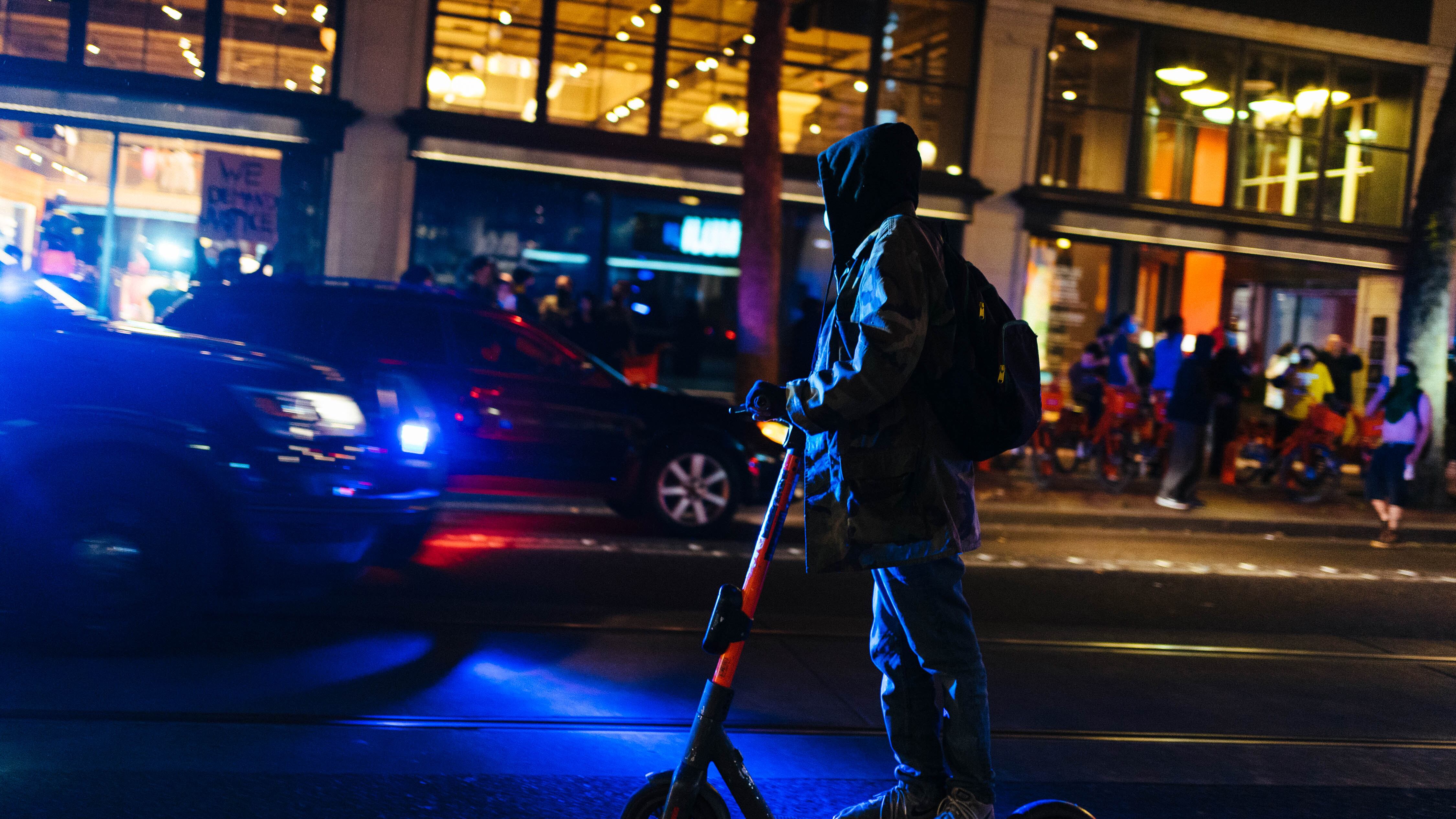The Portland Bureau of Transportation may have been one of the few city entities that actively tried to stymie anticipated conflicts between right-wing groups and leftist antagonists on Aug. 22.
What the bureau did was shut down scooters from Southwest Harvey Milk Street to Clay Street in downtown.
Aug. 22 was a frightening day in Portland. After weeks of build-up and planning, politically opposed groups brawled on the city’s east side, along Northeast 122nd Avenue. Hours later, a gunman exchanged fire with armed leftist activists in downtown Portland.
In the days immediately preceding the events, neither city leaders nor Portland police seemed interested in interfering with the planned conflicts.
However, without much fanfare, PBOT quietly directed electric scooter companies to do what they could to shut down scooter traffic in the area.
“Please be advised that e-scooters will not be available to ride in downtown Portland or Waterfront Park,” an alert from Lime read for users who opened the app in that area. PBOT’s geo-fence lasted from noon Aug. 22 to 6:01 am on Aug. 23.
“PBOT directed the scooter companies to geo-fence a specific portion of downtown so that customers could not start or finish a ride in this area,” communications director John Brady wrote to WW. “We also directed the companies to remove their equipment from this area. PBOT directed companies to do this in anticipation that possible violence related to the Aug. 22 protests could jeopardize the safe use of scooters.”
Brady added: “Under city code, PBOT’s director can direct the scooter companies to change their operations if the safe operation of the scooters isn’t feasible.”
Asked if the city could direct companies to shut down e-scooters or other ride share vehicles at any time, Brady responded: “We cannot just unilaterally demand operational changes from the scooter companies.” He went on to explain the rules were preestablished in the contractual relationships PBOT has with the various companies.
